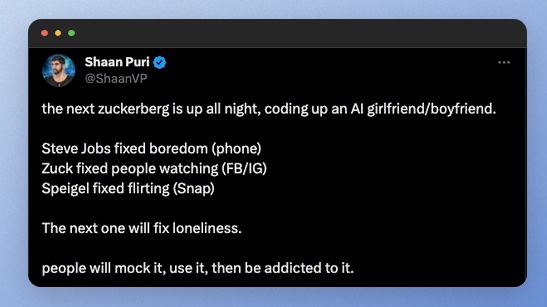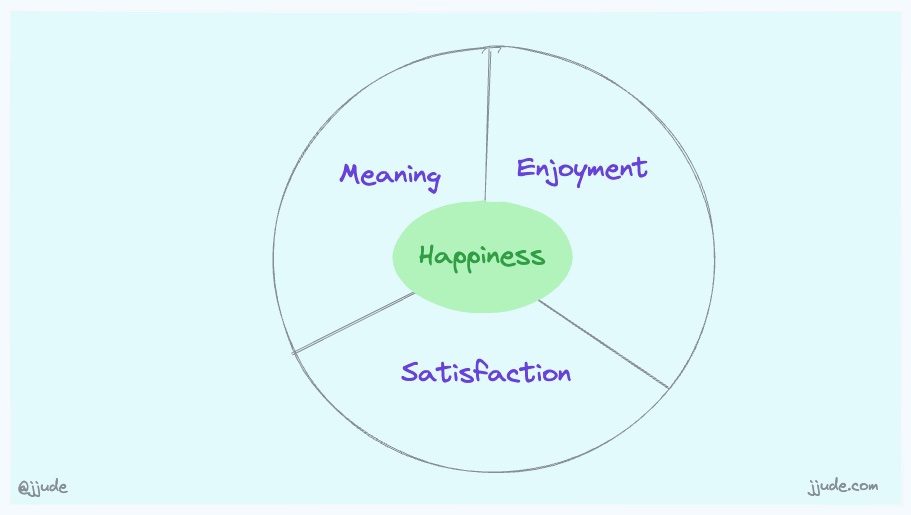
Loneliness is the biggest problem facing the next generation, and technology won’t fix it. Or shouldn’t try to fix it.
While tech isn’t the solution, entrepreneurs will build a solution anyway. They’ll make addictive products, like social media, and become billionaires. Instead of solving the problem, these solutions will only amplify it.
Let’s take a look back at history. The Nokia phones launched with the tagline “connecting the world.” It was easy to talk to people anytime, anywhere. It was awesome. We found our classmates and collegemates on Facebook, reconnected, and shared our lives. Yet the same tech products amplified loneliness. These tech products helped us communicate with people thousands of kilometers away; but they also made us lose the ability to understand people right next to us.
Likewise, tech products will play a significant role in addressing loneliness, but we should be careful about which solutions we build. While tech billionaires want to build addictive solutions and keep users within their walled gardens, technology will only solve part of the loneliness issue. The problem can’t be solved completely by it.
We should use technology to build memories in the physical world with people we care about – this is how we can fight loneliness. Here’s an example from my own life: I’ve connected with two people named Krishna Kumar (KK) and Sathyanand in the last few years. We met online and got to know each other via Zoom, WhatsApp, and LinkedIn. Eventually, we met in person and formed deeper connections. Our virtual interactions paved the way for meaningful relationships. I met Sathya in Gudalur with my family in a holiday home. We walked through the fields and played in the nearby river, creating lasting memories. In the same way, KK visited us in Panchkula. Together, we hiked a trail near a dam. Once again, we bonded over shared experiences and overcoming challenges, which fostered accomplishment, happiness, and connection.
Although technology will be part of the loneliness solution, it’s not the ultimate solution. If we rely solely on technology, we will make it worse. Our goal should be to use it to build lasting relationships and make memories with the people we love.
